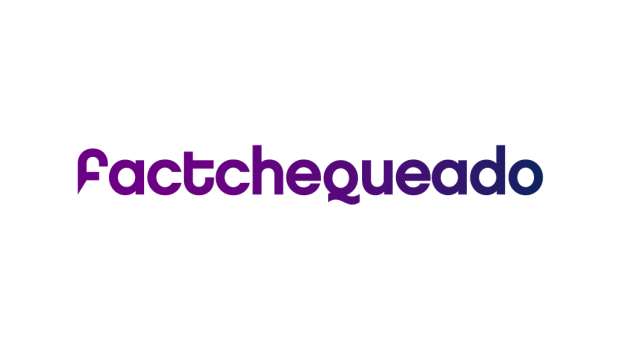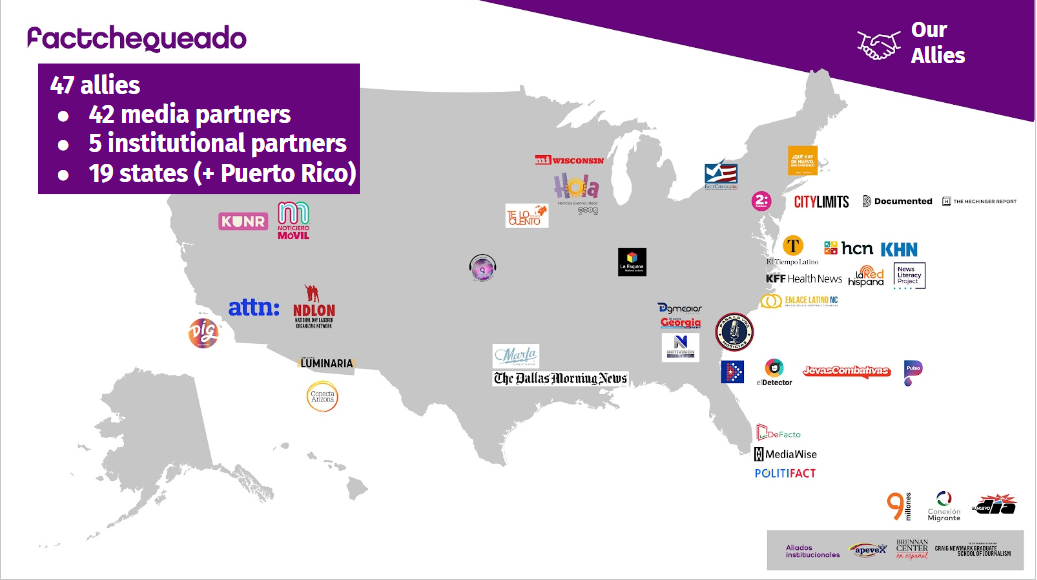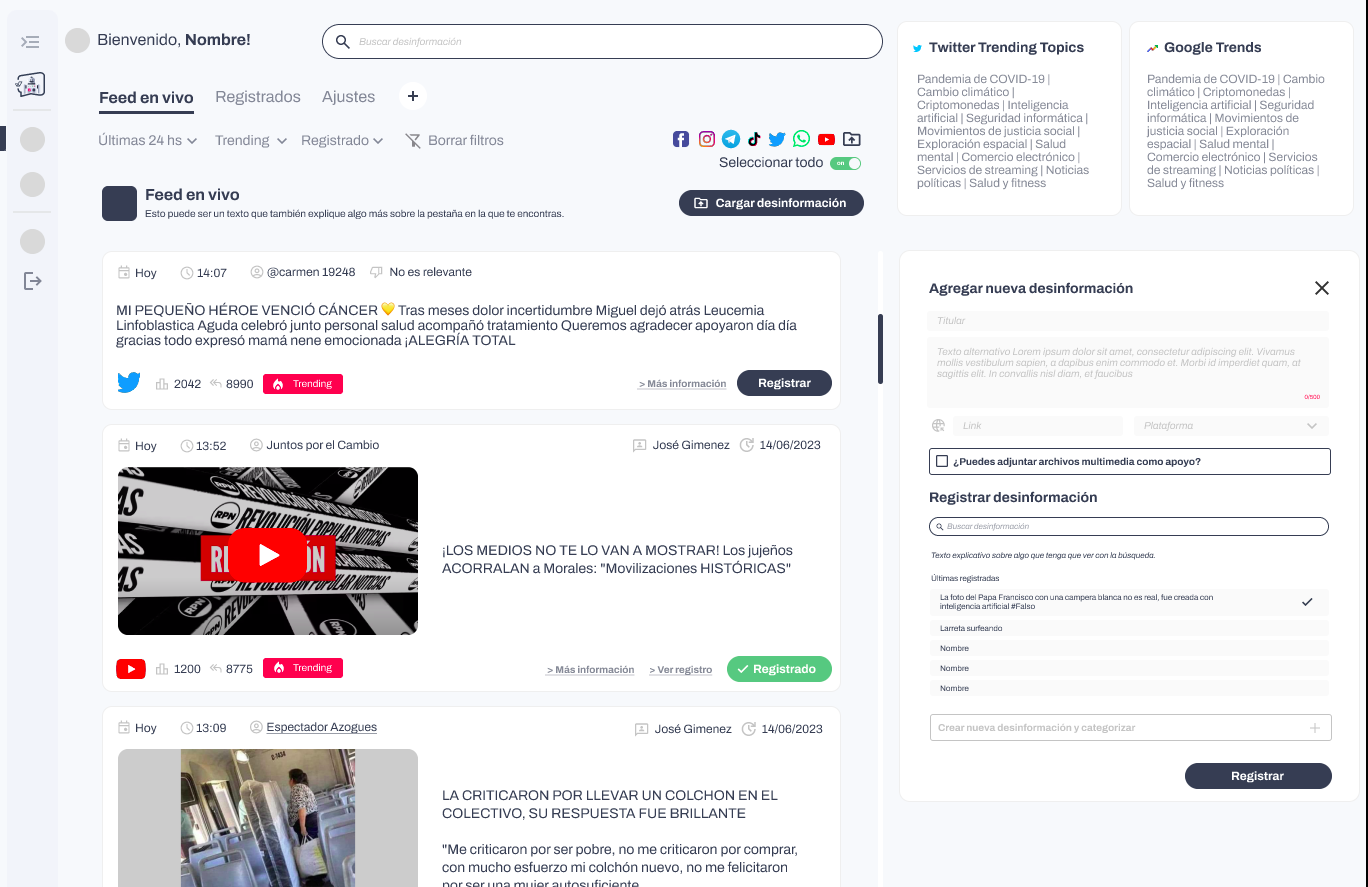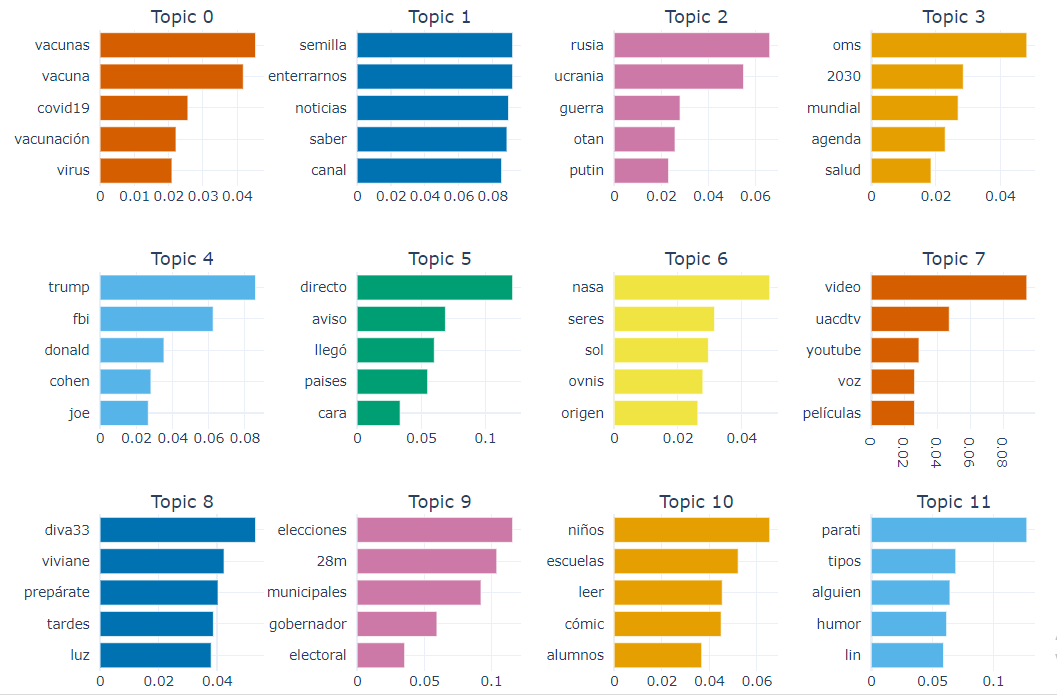
Watch Factchequeado's Demo Day presentation from June 21, 2023.
It is no news to anyone that, as in many other communities, Latinos are being increasingly exposed to mis- and disinformation. Spanish-speaking communities are a big target due to fewer fact-checking efforts being pursued in Spanish, and less priority being placed by Big Tech on flagging false Spanish-language content on their platforms (analysis of online misinformation found for example that Meta failed to flag 70% of Spanish-language misinformation surrounding COVID-19 compared to just 29% of such information in English).
It is in this context that Factchequeado, an initiative created to counter mis- and disinformation within the Hispanic and Latino communities in the United States, was born. This initiative is led by Chequeado, the first fact-checking media organization in Argentina and the Global South, and Maldita.es, the first Spanish non-profit fact-checking media created to combat disinformation in Spain.

Map of some of the media and institutional partners in the US.
From small newsrooms to big organizations, Factchequeado has built a network of 47 allies (a number that increases every month), with the intention to fill a gap and find a solution for Spanish-speaking communities especially vulnerable to mis-disinformation. This is a community of 60 million Hispanics and Latinos living in the U.S., which by 2030 will represent more than 20% of the country's population, and worryingly, Meta, Google and other social media companies pay much less attention to non-English-language mis- and disinformation circulating on their platforms.
Another problem we face is that although Latino communities as a whole represent the biggest minority in the US, they are a collective hard to define. It includes groups with very different origins and interests, each of which holds bonds with multiple countries. This tends to fragment conversations, and the flow of information is different for each of these subgroups. And while those who target these communities with mis- and disinformation are well aware of the most effective ways to target each particular group, we can’t say the same about the responses that have been proposed to address this issue, which tend to be scarce, underfunded and hardly take into account the caveats and differences of each community.
Even in a more coarse-grained approach, Hispanic communities have different dynamics in terms of news consumption and social media use than the rest of the country. Pew Research indicates that Hispanic Americans (46%) are far more likely to say they use WhatsApp than Black (23%) or White Americans (16%). For this particular case, Factchequeado implemented Botalite’s AI-suported Whatsapp chatbot, to pay closer attention to what is circulating in Whatsapp groups and at the same time increase our community engagement.
In this context, it becomes crucial to produce fact-checked content in Spanish especially aimed at these underserved communities to limit the impact of mis- and disinformation And to be able to do this, we need to get a hold of the dis- and misinformation that is circulating as soon as possible to reduce the possible damage.
Monitoreo
To amplify the work we started in Whatsapp, our team has developeda tool, called Monitoreo, that allows journalists and fact-checkers to monitor content coming from YouTube, TikTok, Twitter, Telegram, Instagram and Facebook, and uses AI to sort the content found according to show the most relevant posts in an attempt to save journalists a great deal of time that they would need to spend scrolling through each of this platforms to be able to catch potentially harming mis- and disinformation. With a central focus on Spanish content and the expertise of journalists who are well versed in the dynamics of Latino communities, this tool amplifies our ability to track what is circulating inside these communities, something that big platforms and monitoring tools really struggle to achieve.

Screenshot of the monitoring tool Monitoreo.
Our algorithm uses automated topic clustering and sentence embeddings to analyze content and determine how similar it is to previously checked content, and how relevant is the topic to the fact-checkers. The model also takes into account virality and journalist’s feedback is used to fine tune the suggestions, to tailor results to each newsroom's needs.

Some of the early results for the automated topic clustering. You can see topics as vaccination, 2030 agenda, the war in Ukraine and UFOs, among others.
The first version of this tool is being tested in Factchequeado’s newsroom, and we hope that it soon will be available to Factchequeado’s allies. In the course of this challenge, the team went from a basic proof of concept prototype to a fully functional application, and we have some exciting changes and features coming along the road, like integrating Whatsapp into the monitoring (via our Whatsapp chatbot) and adding speech-to-text transcription for videos.
By providing fact-checkers a window into what is going around in social media platforms (some of which are especially obscure), with a special focus on dis- and misinformation, our intention is to free up time for them to focus on other critical tasks and help them detect viral and harmful misinformation circulating in Spanish-speaking communities. At the same time, fact-checkers will be contributing to build a dataset that scales with their work and which they can later use to get a new revenue stream, as we know that funding in small newsrooms and fact-checking organizations is a big issue.
Our team
We are a team of Latinos developers who are highly committed to creating technological solutions to increase Latino communities’ access to verified information. With more than 7 years of experience, Chequeado has been introducing AI to improve the efficiency of the fact-checking process with a suite of tools, grouped under the name of Chequeabot, that includes claim detection, claim matching, and automated transcriptions (including live events), amongst others. The tools are currently being used by several fact-checking organizations in Latin America (including Argentina, Bolivia, Brasil, Chile, Colombia, Cuba and Venezuela ) and in Spain. Our uniqueness comes from having together in our offices the journalists that use the tools and those who develop them, giving us incredibly precise and useful insight into the needs of fact-checkers and newsrooms in general.
Team members: Marcos Barroso, Sebastían Lanaro, Joaquín Saralegui, Diego Vasconcelo, Laura Zommer




